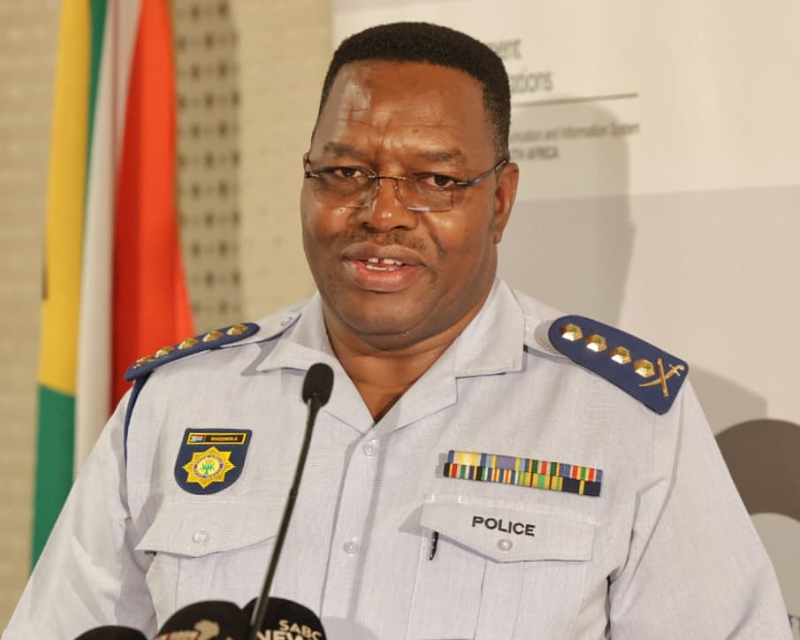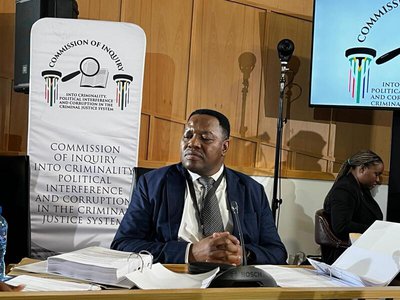South African Inquiry Focuses on Police Corruption Allegations
A government-backed inquiry, the Madlanga Commission, is currently investigating allegations of criminal syndicate infiltration within the South African Police Service (SAPS) and the wider justice system. These claims, made by KwaZulu-Natal Police Commissioner Nhlanhla Mkhwanazi, have sparked public outcry and led to both a parliamentary probe and the commission's establishment.
Mkhwanazi's Testimony and Key Allegations
Lt-Gen Nhlanhla Mkhwanazi's testimony centers on claims that high-ranking politicians and police officials are colluding with criminal networks. He alleges that the disbanding of the political killings task team in KwaZulu-Natal was a direct result of interference to protect criminal interests. These interests are allegedly linked to African National Congress (ANC) funding and efforts to suppress police investigations.
Mkhwanazi described a syndicate involving politicians, law enforcement officers, prosecutors, magistrates, and judges, allegedly controlled by drug cartels and businesspeople in Gauteng. He claims this network undermines the justice system itself. He stated, "It has been my aim that I want to demonstrate that the criminal justice system has been subject to a continuous threat, as well as sabotage...To a point where we believe it is at real risk of total collapse if nothing is done."
Key Figures Mentioned in the Inquiry
Several individuals have been implicated in the ongoing inquiry, including:
- Gen Fannie Masemola: The current police commissioner, who received a letter regarding the disbanding of the political task team.
- Lt-Gen Dumisani Khumalo: His arrest, according to Mkhwanazi, was an attempt to derail a crime intelligence investigation.
- Cedrick Nkabinde: Chief of staff at Senzo Mchunu's office, expected to corroborate claims of outside influence on the disbanding of the task team.
- Sgt Mbele and Sgt Sithole: Investigating officers who allegedly received threats after working on the Armand Swart and DJ Sumbody murder cases.
- Prosecutor Coetzee: From the NPA office in the Vaal, who requested protection for threatened investigators.
- Mesuli Mlandu: Former executive director, who raised concerns about Lt-Gen Shadrack Sibiya.
Government Response and Concerns
President Cyril Ramaphosa established the Madlanga Commission to investigate these claims. Police Minister Senzo Mchunu and Deputy National Police Commissioner Lt-Gen Shadrack Sibiya have been placed on special leave. The South African parliament is also conducting a separate investigation.
Concerns have been raised about the effectiveness of past commissions and the potential for meaningful consequences. Julius Malema, leader of the Economic Freedom Fighters, has questioned the commission's powers. Despite these concerns, experts like Louise Edwards suggest the inquiry could lead to significant reforms if its recommendations are implemented.
Implications for South Africa's Justice System
The allegations of corruption and political interference pose a significant threat to South Africa's already strained justice system. The Madlanga Commission faces the challenge of uncovering the truth, protecting witnesses, and recommending measures to restore public trust. The outcome of this inquiry will have a profound impact on the future of law enforcement and the rule of law in South Africa. The chairman of the Commission, Madlanga, stated “If the allegations are proved to be true, that spells doom for SA’s criminal justice system."
| Key Figure | Role/Allegation |
|---|---|
| Nhlanhla Mkhwanazi | KwaZulu-Natal Police Commissioner, making the allegations. |
| Senzo Mchunu | Police Minister, accused of improperly disbanding the task team. |
| Shadrack Sibiya | Deputy National Police Commissioner, allegedly involved in disbanding the task team. |
| Fannie Masemola | National Police Commissioner, received letter about disbanding the task team |
 Visit the website
Visit the website



